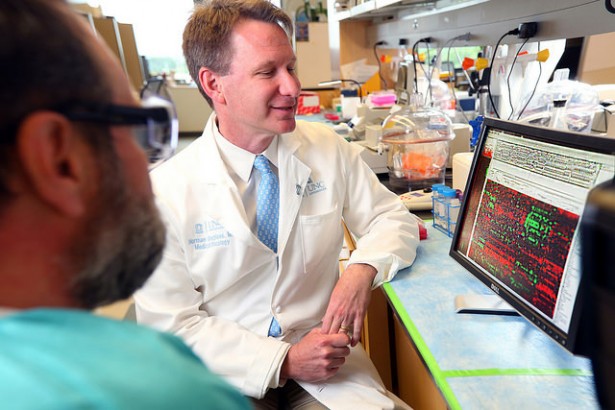4 Ways Healthcare Providers are Innovating with IBM Watson Technology
 IBM's top physician says the supercomputing power of Watson will help healthcare providers “personalize and predict outcomes.”
IBM's top physician says the supercomputing power of Watson will help healthcare providers “personalize and predict outcomes.”
Kyu Rhee, MD, is a primary care physician and the Chief Health Officer for IBM's workforce. According to Fortune, Rhee is joining IBM's Watson Health unit with the same title.
“This is really the natural evolution of what I’ve been doing for the past 20 years,” said Rhee recently on Fortune.com. “I remember being in a clinical setting with my paper-based charts and medical textbooks, facing the pressure to try to read all that data and digest it. It wasn’t humanly possible.
“Now, Watson has the cognitive computing power to deliver those insights quickly when they’re most needed.”
Continuous learning
Watson is the first commercially available cognitive computing system, designed to analyze high volumes of data and propose evidence based answers. The system continuously learns, increasing its value and knowledge over time.
Earlier this year, IBM announced the formation of Watson Health, a business unit to help providers and insurers gain "new insights from the massive amount of personal health data being created daily."
Rhee is charged with encouraging clinical use of Watson and ensuring the system meets the needs of physicians and other healthcare providers. Several initiatives utilizing Watson technology are already underway or are in the planning stages. Among them:
CVS Health: The retail pharmacy giant is partnering with IBM to help patients better manage chronic conditions. CVS pharmacists or practitioners at its Minute Clinics will use Watson to “draw on a much greater breadth of information to ensure that you get the highest quality outcome,” IBM’s Steven Gold told Bloomberg TV.
Gold says a pharmacist reviewing a prescription for asthma medication might also take into consideration local pollen counts or information from a patient’s wearable device to deliver more personalized health recommendations. A pilot utilizing Watson analytics in CVS stores could be launched early in 2016.
Welltok and Apple Watch: Denver-based population health app developer Welltok uses Watson to provide wellness advice to wearers of the Apple Watch. It has developed an app that users can talk to directly to get answers to questions about health, nutrition or exercise.
The app might also proactively push health information to a user, for example, offering restaurant recommendations to someone watching their cholesterol. For now, the Apple Watch version of the app is only available to internal IBM employees as a pilot program. IBM is offering free or discounted watches to its employees to incentivize use.
Mayo Clinic: A key challenge in launching clinical trials is encouraging patient enrollment. Mayo Clinic hopes to more quickly match prospective participants to trials with help from Watson.
In a joint initiative announced in September, Mayo said its new Watson system is being trained to analyze patient records and clinical trial criteria in order to determine appropriate matches for patients. Watson also may help locate patients for hard-to-fill trials, such as those involving rare diseases.
Cancer Center Research: Fourteen U.S. and Canadian cancer institutes have signed on to share genetic data from tumors with Watson in an effort to generate more personalized drug treatment options. According to Business Insider, “it can take weeks to identify drugs targeting cancer-causing mutations. Watson can do it in minutes and has in its database the findings of scientific papers and clinical trials on particular cancers and potential therapies.”
The Cleveland Clinic and Yale Cancer Center are among those participating in the project. Oncology researchers note, however, that even with better data, the utility of personalized drug recommendations may be limited, as chemotherapy and radiation remain the standard of care for many common forms of cancer.